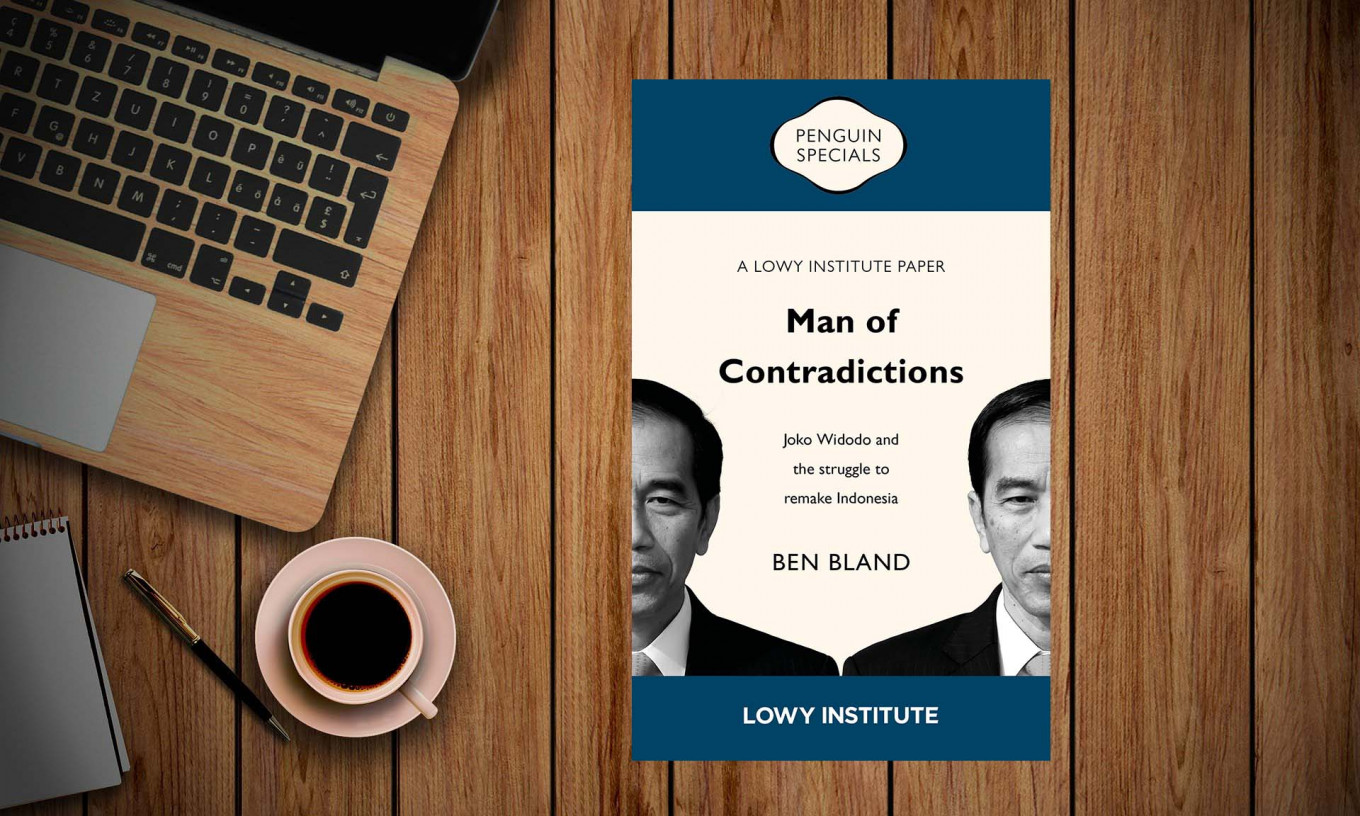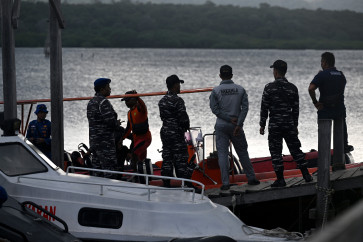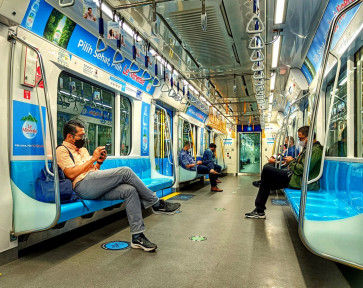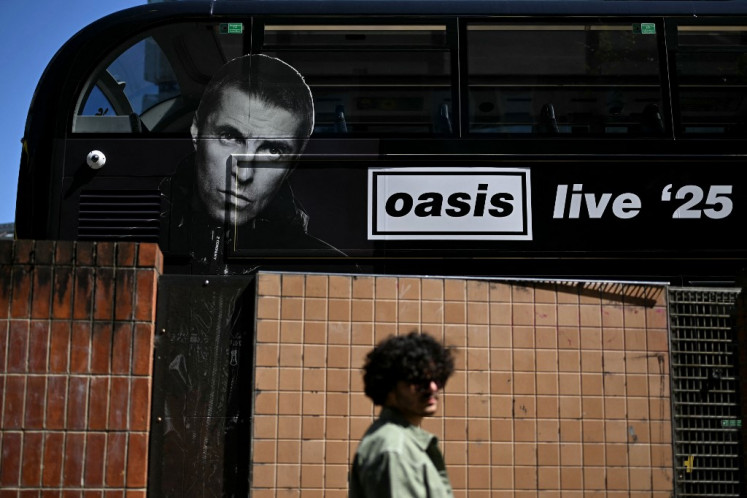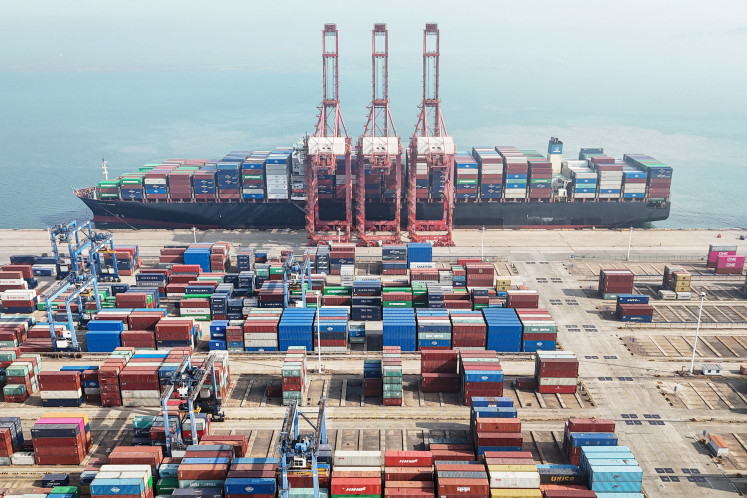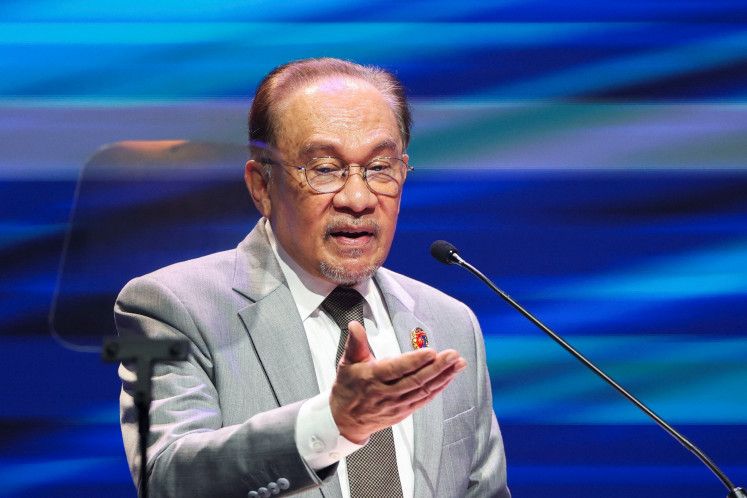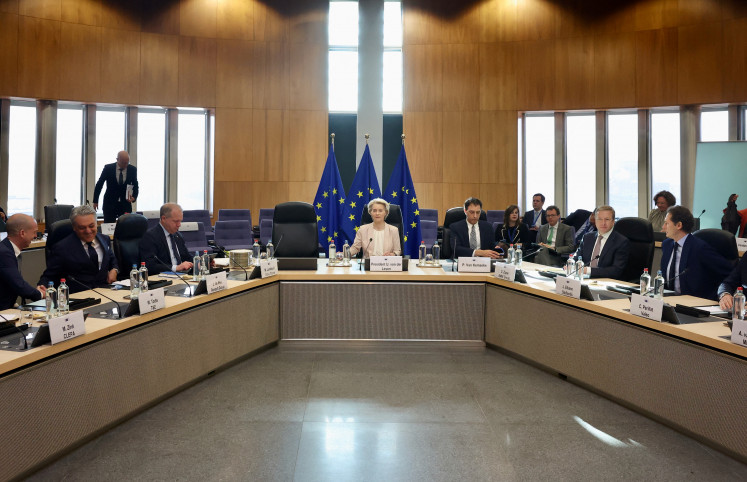Popular Reads
Top Results
Can't find what you're looking for?
View all search resultsPopular Reads
Top Results
Can't find what you're looking for?
View all search results‘Man of Contradictions’ spotlights Jokowi’s struggle to remake Indonesia
Joko “Jokowi” Widodo’s victory in the 2014 presidential election understandably excited many Indonesians.
Change text size
Gift Premium Articles
to Anyone
J
oko “Jokowi” Widodo” was the first leader not from the country’s elite or military and was widely seen as a man of the people and reformer who pledged to strengthen democracy, spur faster and more equitable economic growth and put human rights on his agenda.
Unsurprisingly, that has proven too tall an order. These days, nearly one year into his second five-year term, not everyone is thrilled with Jokowi, who has had better years than this one.
COVID-19 has posed an enormous challenge for Indonesia, and his leadership in combatting it – particularly his withholding news of Indonesia’s first cases to prevent panic – has been criticized by many. Still, Jokowi’s standing with ordinary Indonesians doesn’t appear to be impacted.
Jokowi’s story, personality and record as president are the subject of a new book by Ben Bland, the Financial Times correspondent in Indonesia when the furniture-shop owner was elected Jakarta governor in 2012 and president just two years later.
Ben Bland (Courtesy of lowyinstitute.org/-)Bland’s 146-page book is titled Man of Contradictions: Joko Widodo and the struggle to remake Indonesia. It tracks Jokowi on his stunning journey from a furniture business in the Central Java town of Surakarta to Merdeka Palace in nine years.
Bland, now at the Lowy Institute in Sydney, has met or interviewed Jokowi more than a dozen times, and has nice color and detail on the leader that Malcolm Turnbull, Australia’s former prime minister, called “a cool cat in every respect”.
Jokowi doesn’t get a great report card from the author, and his grades have weakened the longer he’s been in office. “By his second term, the man who pitched himself as an outsider had become deeply embedded in elite politics,” Bland writes. And along the way, Indonesia has seen some moves that resemble Soeharto’s New Order, during which opponents were repressed.
He notes that a growing number of people criticize Jokowi as a “latter-day Soeharto lite”. The President’s “authoritarian turn”, as some called it, stemmed largely from developments in 2016 and 2017 involving Jokowi’s one-time political partner in running Jakarta, Basuki Tjahaja Purnama, known as Ahok. He was accused of blasphemy for comments – taken out of context – on voting and the Quran, which led to huge anti-Ahok rallies organized by radical Islamic figures. He was defeated in the Jakarta governor election and was imprisoned for two years – and Jokowi felt powerless to do anything.
The President, Bland says, was blown off course by the mass movement that swept Ahok away and “responded by reaching for the guide ropes of authoritarian rule, many of which had been left in place since the fall of Soeharto”.
“Jokowi has never been the democratic reformer that he has allowed some of his boosters to think he is. But neither is he some sort of authoritarian wolf in sheep’s clothing,” writes Bland. “Rather, he has been shaped by the winds that swirl around him.”
After Ahok was pulled down, Jokowi’s government threw the “coercive power” of the state at some Islamic groups, “tactics redolent of Soeharto’s government”. A presidential decree outlawed a radical Islamic organization, Hizbut Tahrir Indonesia.
Jokowi, who has emphasized economic development and growth, has allowed a weakening of the country’s anti-corruption agency, and in September 2019 that sparked the biggest student protests in Jakarta since ones pushing for Soeharto’s resignation in 1998. And Jokowi has given a greater role in society to the military, which had seen its special “dwifungsi” (dual function) position, for defense and government, reduced in much of the post-Soeharto era.
“Jokowi was not intentionally seeking to revive New Order governance structures,” the text says. “Rather, he was reaching for any practical levers of power that might help him achieve his aims. But, regardless of his intentions, the former mayor who used democratization to rise to the presidency has proven to be a poor guardian of democracy.”
To be sure, Jokowi has had accomplishments. In his first term, Jokowi improved access to health care for poor Indonesians, though COVID-19 this year has illustrated how woeful the state medical system is. He kept the economy growing at 5 percent a year even though commodity prices, pivotal for Indonesia, were poor.
Also in the first term, Jokowi proved serious about building infrastructure, as dozens of airports and toll roads were constructed. Bland labels him the “hard-hat president” and notes he’s driven more by action than ideas. (In a debate before the 2019 election, Jokowi’s opponent Prabowo Subianto complained infrastructure projects were done without good feasibility studies).
After beating Prabowo in the 2019 vote by a larger margin than in 2014, Jokowi shocked many by naming the ex-general as his defense minister, the same man who had gone to court in an unsuccessful bid to annul the 2019 vote as rigged. In 2014, Prabowo had also tried to get his loss to Jokowi overturned.
Although Jokowi’s inclusion of his main rival’s party boosted his parliamentary majority, there’s no guarantee of support for his agenda, as shown by the difficulty of passing an “omnibus” bill aimed at reducing regulatory obesity and boosting job creation.
One factor is that Jokowi isn’t his party’s chairman; Megawati Soekarnoputri is. And COVID-19 has complicated or derailed many plans, including Jokowi’s controversial one to move the capital to East Kalimantan.
Noting how complicated Indonesia is, Bland comments, “It is incredible that this diverse nation of thousands of islands and hundreds of languages and cultures has survived as a unitary state, through civil wars, coup attempts, genocidal violence, insurgencies and outside meddling”.
Bland is a good writer, and the book is an easy read, though some word choices are obscure. Prabowo is described as a “tub-thumping rhetorician”. Also, the text says mining giant Freeport was “nationalized”, which implies that the government unilaterally took it over, when there were long negotiations over the price.
With COVID-19 and so many other challenges, can Jokowi go out with notable achievements, or will his tenure ending in 2024 disappoint?
Bland isn’t optimistic, writing, “It seems he will do little more than muddle through his final term as President. He may once more demonstrate that being underestimated is his greatest strength. I hope so. But I fear that while Jokowi’s story shows what is possible in Indonesia, it also shows the limits”. (ste)
-- The writer was the Wall Street Journal's Indonesia reporter from 1987 until 1998.

